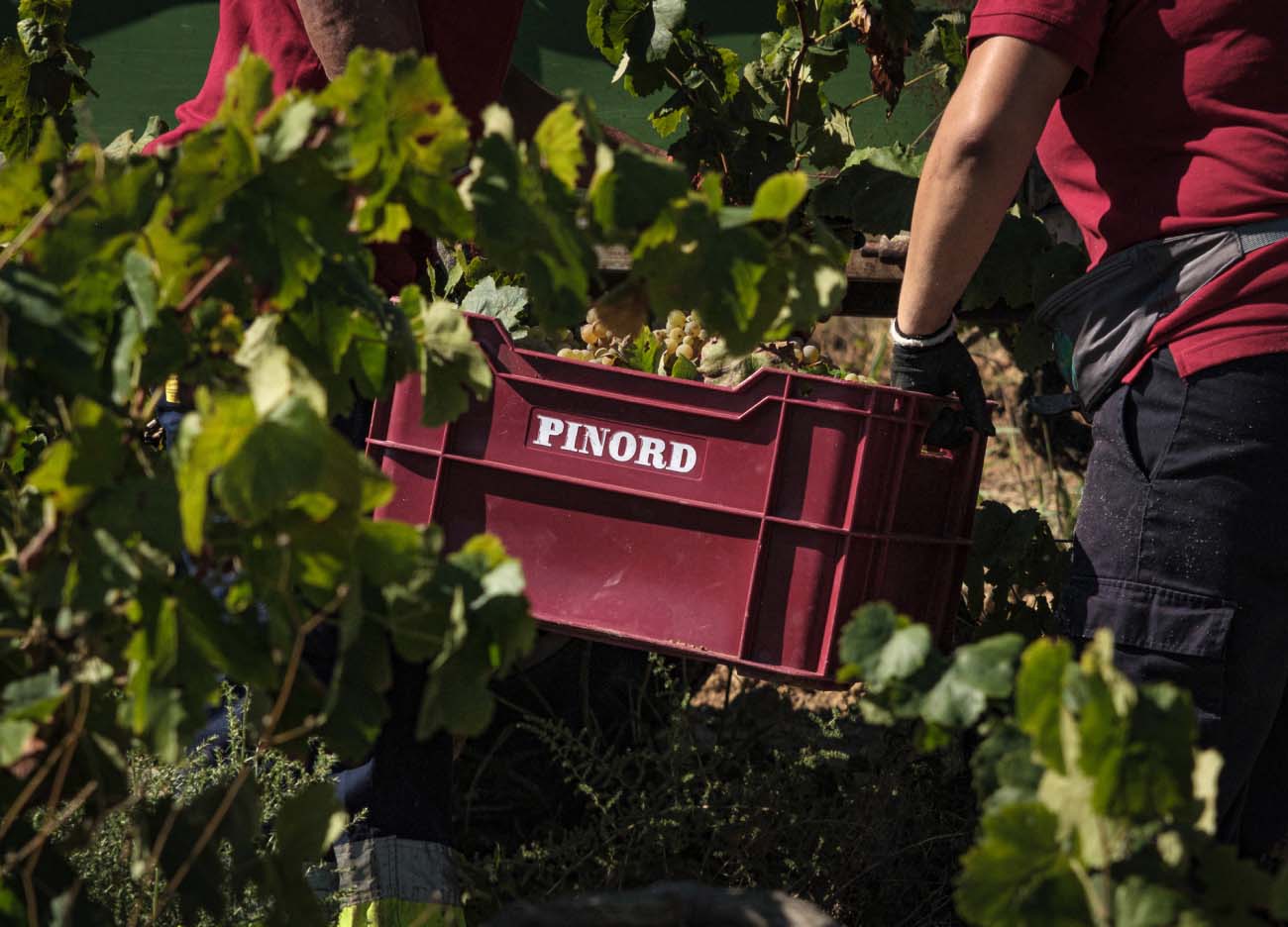Biodynamic Farming
In 2007 PINORD achieved Demeter certification for its biodynamic vineyards, wineries, and wines, making it the first winery in Spain to achieve this distinction
Biodynamic Farming
In 2007 PINORD achieved Demeter certification for its
biodynamic vineyards, wineries, and wines, making it the first
winery in Spain to achieve this distinction
Biodynamic agriculture is a philosophy that treats the vineyard as a living, interconnected organism seeking complete harmony with nature and cosmic cycles to create wines with soul and a lot of personality. Biodynamic is practiced with the heart, guided by intuition and a passion for the land.
Biodynamic agriculture, which originated from the 8 agricultural lectures given by Rudolf Steiner in the town of Kobernt, Germany. Steiner observed that conventional farming practices were degrading soil quality and plant health, and proposed an integrated system that views the farm as a living, balanced, and self-sufficient organism.
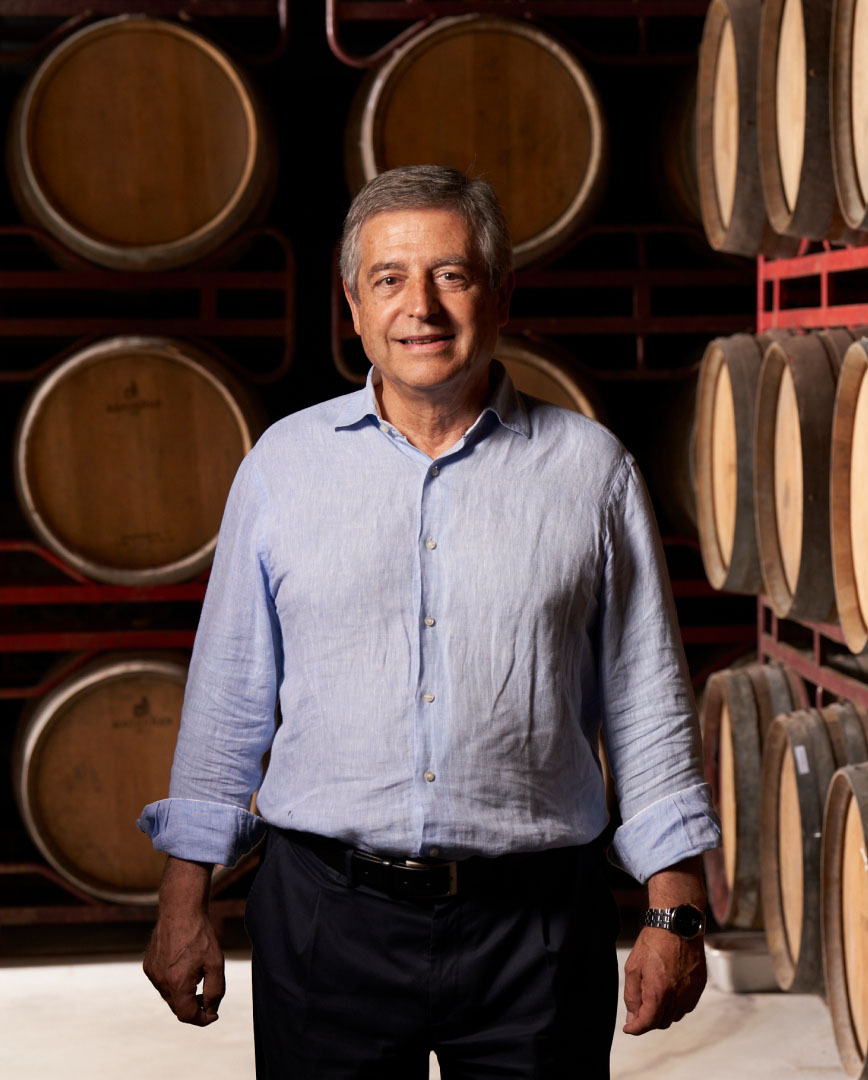
“We practice preventative farming. Our goal is to recover nutrients, bacteria, microorganisms, and organic matter necessary to bring life back to the soil for the healthy growth of our vineyards. To achieve the highest quality, we do this by applying biodynamic preparations following the Maria Thun calendar. Our ancestors called it: The Farmer’s Calendar.”
Joan Josep Tetas
KEY PRINCIPLES
OF BIODYNAMIC FARMING
AT PINORD WINERIES
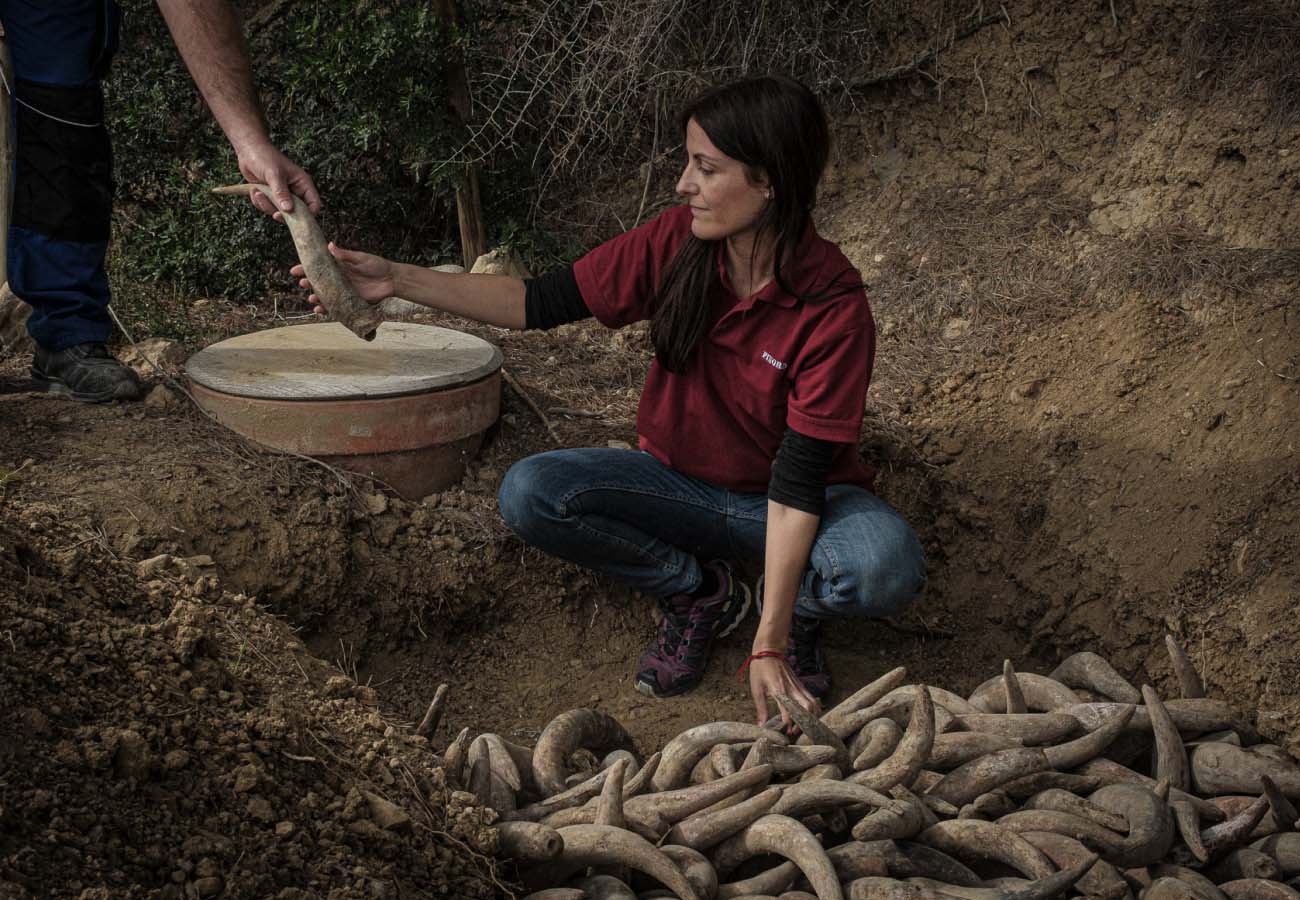
Connection with the land:
Adapt agricultural practices to the unique characteristics of each vineyard. Respect and encourage local biodiversity.
“Each vineyard and plot are unique, which is why we personalize the treatments according to the specific needs of each one. Additionally, we promote and protect biodiversity, considering it a key ally in our farming practices. This helps us maintain a healthy and balanced environment that boosts the natural resilience of our vines and enriches the quality of our wines.”
Mireia Tetas
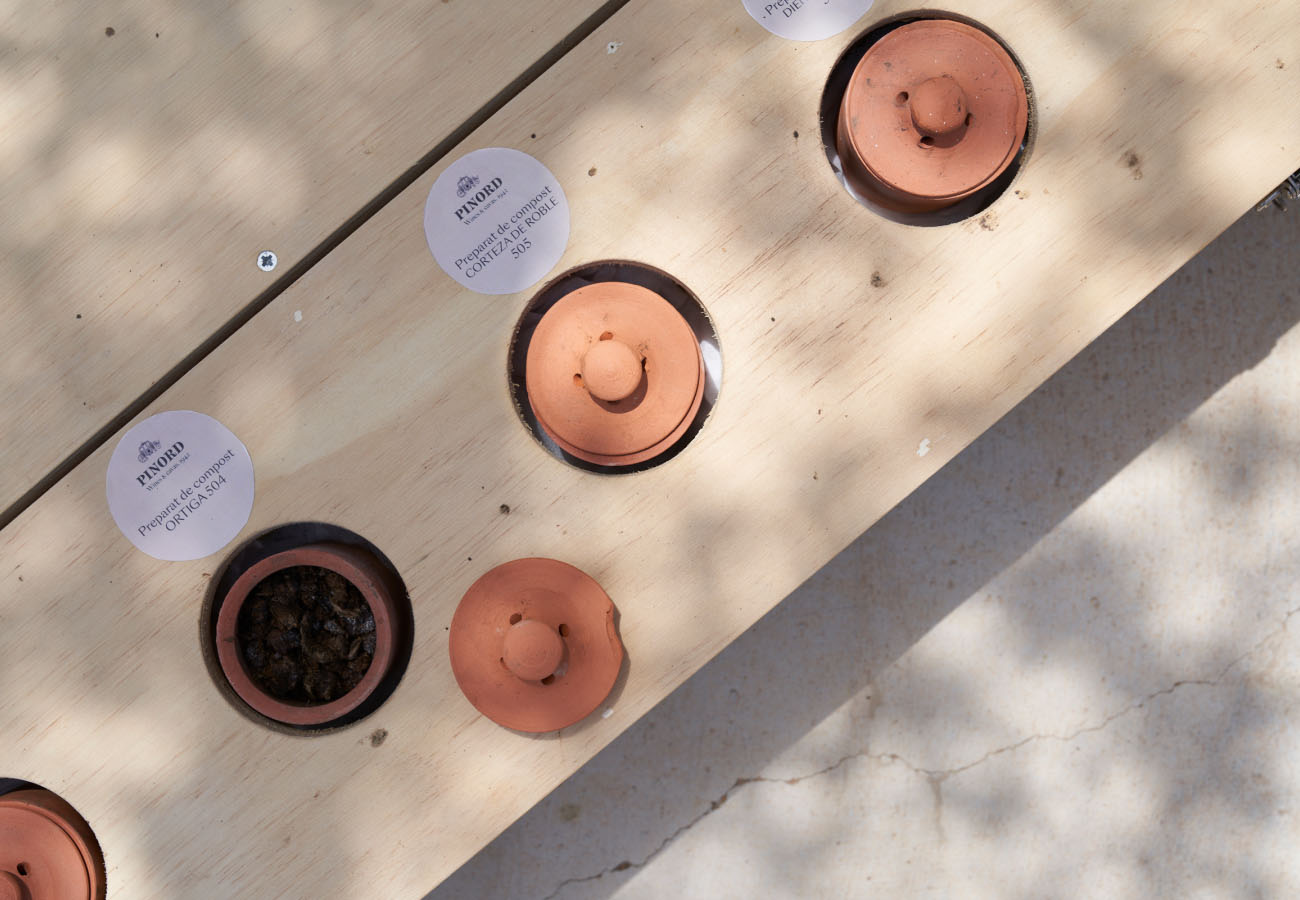
Biodynamic Preparations
Use preparations (500-508) to strengthen the soil and vines, naturally providing nutrients and life.
We use biodynamic preparations to enrich the soil and plants, as well as to combat diseases. These preparations, made from natural ingredients, help improve soil fertility and vine health, ensuring exceptional grape production.
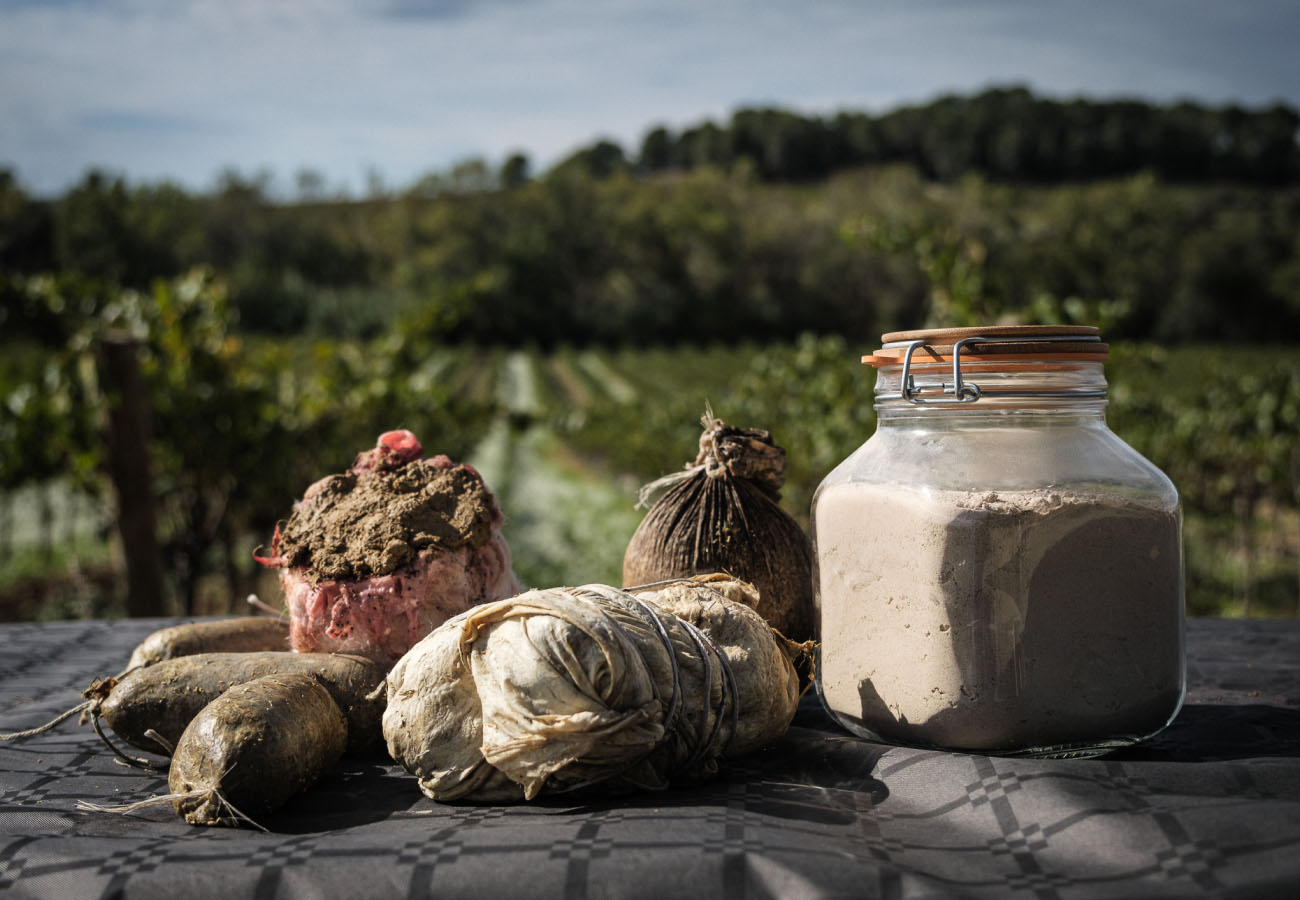
Biodynamic Calendar
Plan agricultural tasks according to lunar and planetary cycles to optimize growth and grape quality.
By following the biodynamic calendar, we determine the optimal moments to apply preparations and carry out winemaking tasks. This calendar, based on lunar and planetary cycles, guides us to ensure that plants are in the best condition to receive applications, helping us produce wines of the highest quality that reflect the best expression of the terroir.
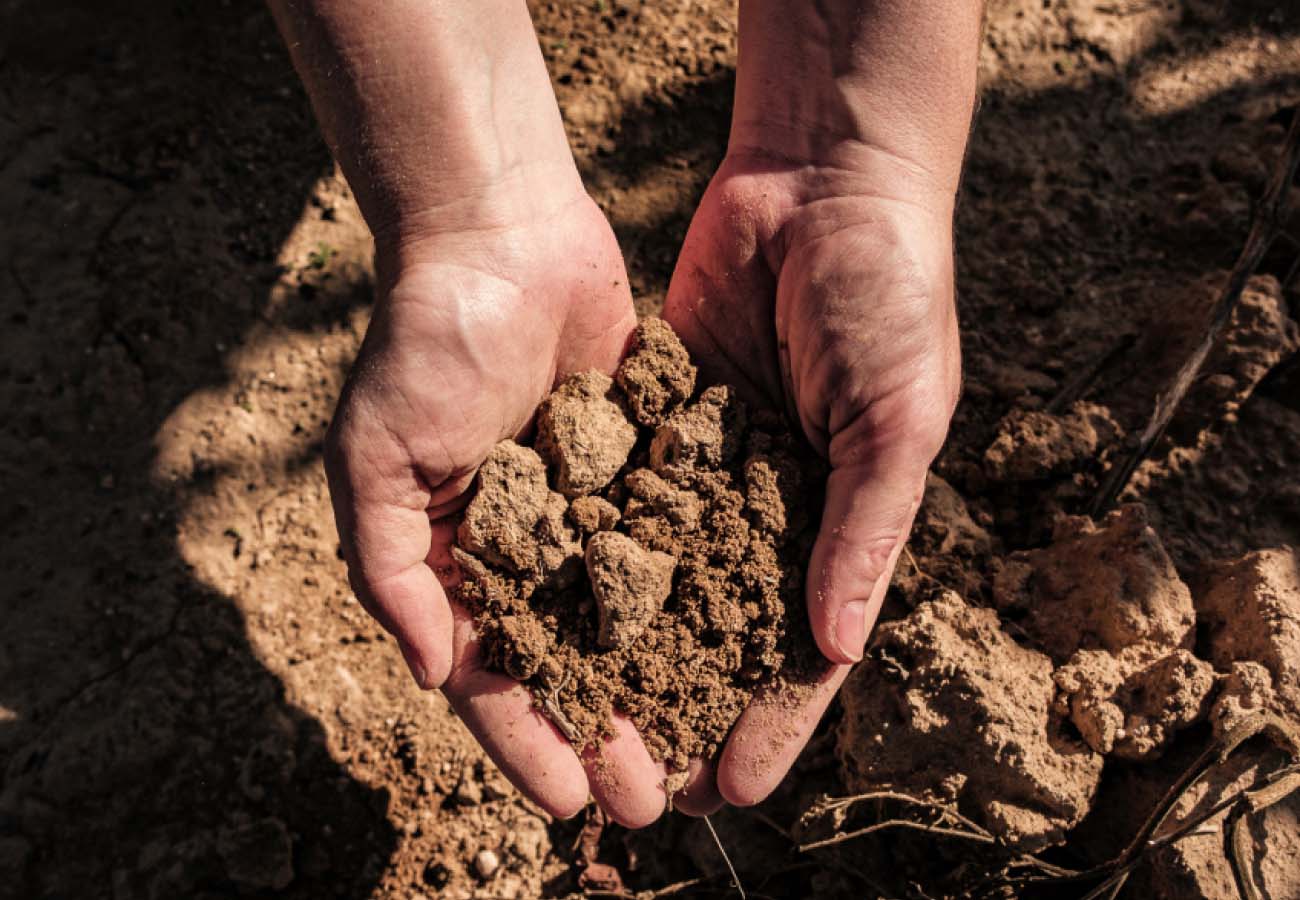
Treating the land as a living being
Enrich and provide the soil with organic matter and essential nutrients through biodynamic composting. Cultural practices (ex., ploughing the land) are carried out according to the lunar phases.
Our priority is to recover the nutrients, bacteria, and life of the soil that have been degraded using chemicals. We firmly believe that a rich, living soil is essential for the healthy growth of the vines. Restoring the natural richness of the soil allows the plants to nourish themselves properly, increasing their resistance to disease and drought. Our goal is to restore the soil’s original vitality, ensuring a balanced and sustainable ecosystem.
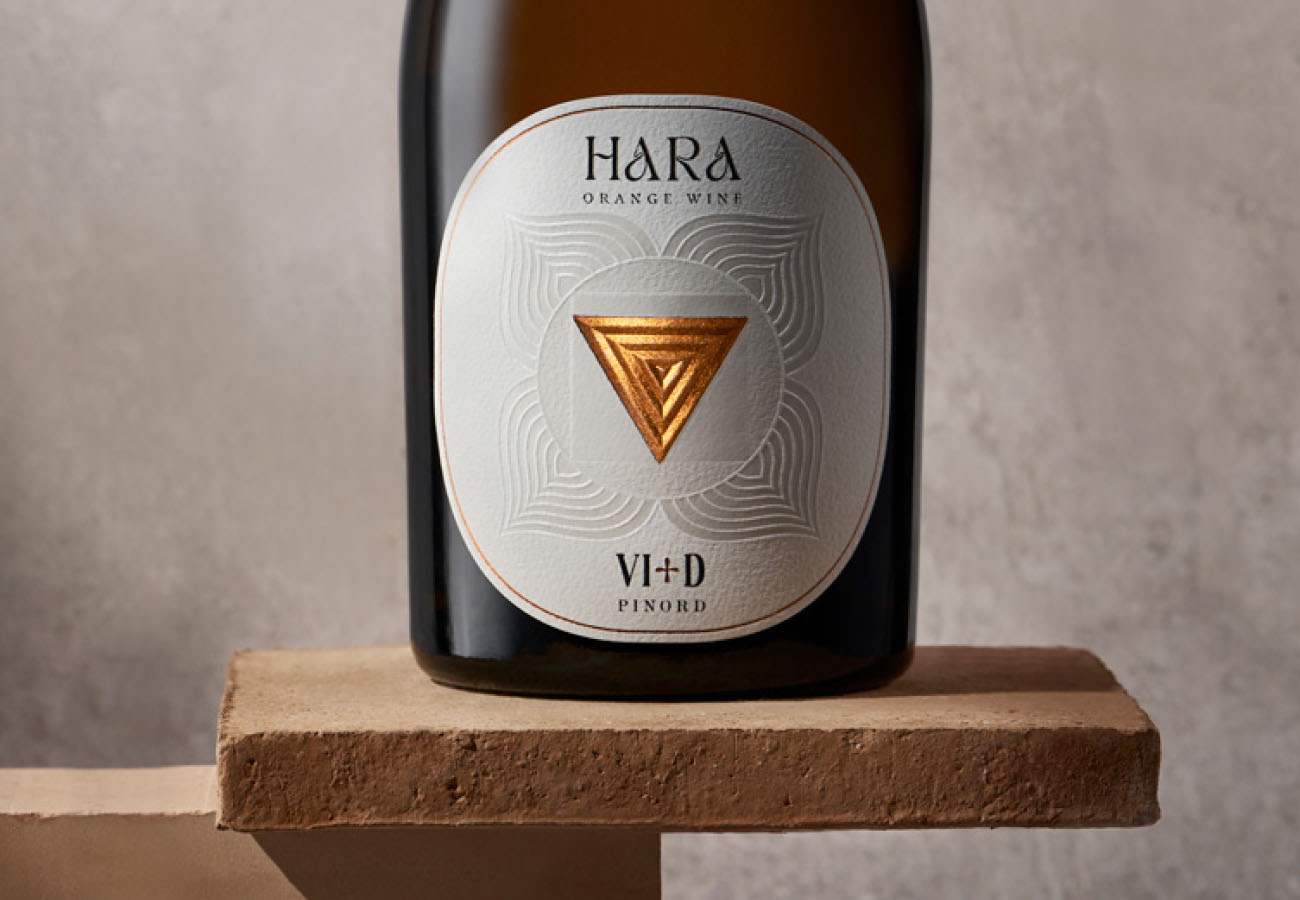
Commitment to quality
Reflect the biodiversity of our surroundings in every bottle, making unique wines with personality.
We strive for the highest quality in all our wines. This means our wines must faithfully represent our landscape and terroir, highlighting the minerals and characteristics of each grape variety.
BIODYNAMIC PREPARATIONS
Made entirely on the PINORD estate, these preparations are essential
to maintaining the health of our vineyard, ensuring our wines reflect
the very best of our land.
Made entirely on the PINORD estate, these preparations are essential to maintaining the health of our vineyard, ensuring our wines reflect the very best of our land.
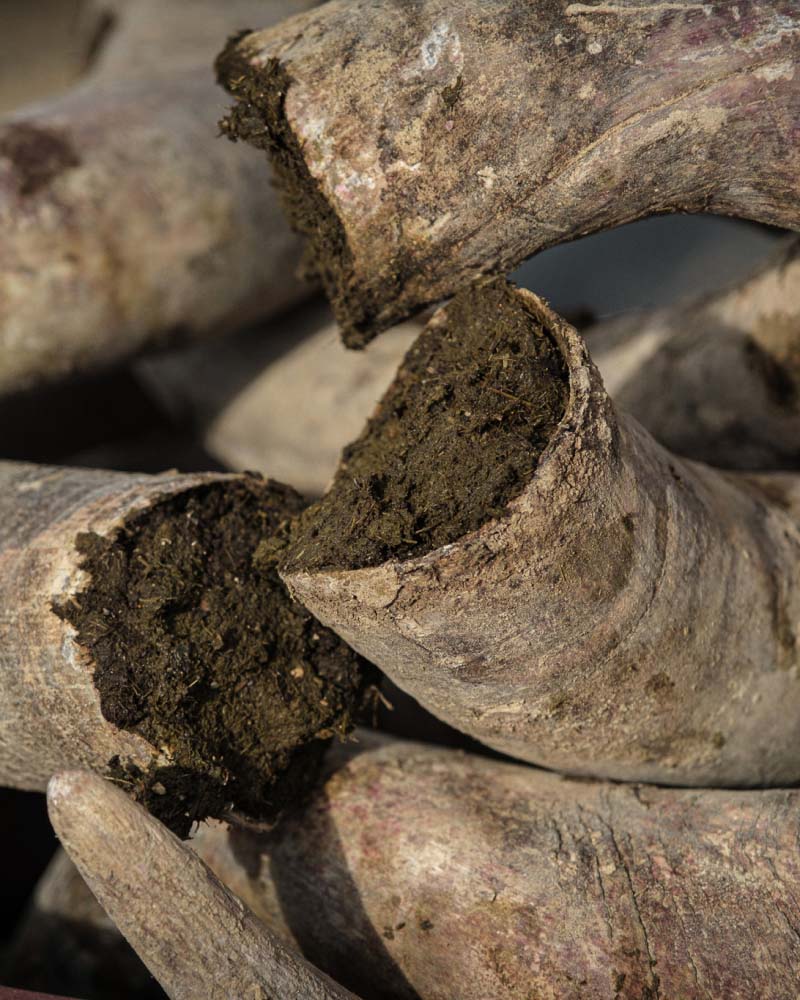
PREPARATION 500
Cow Manure in Cow Horns
Purpose: Estimula la vida microbiana del sòl, millora l'estructura i la fertilitat del sòl.
When to Apply: Autumn, January, and February.
How it’s Made: Fresh organic cow manure buried in cow horns during the winter.
Benefits: Improves soil fertility and water retention capacity, promoting the growth of healthier plants.
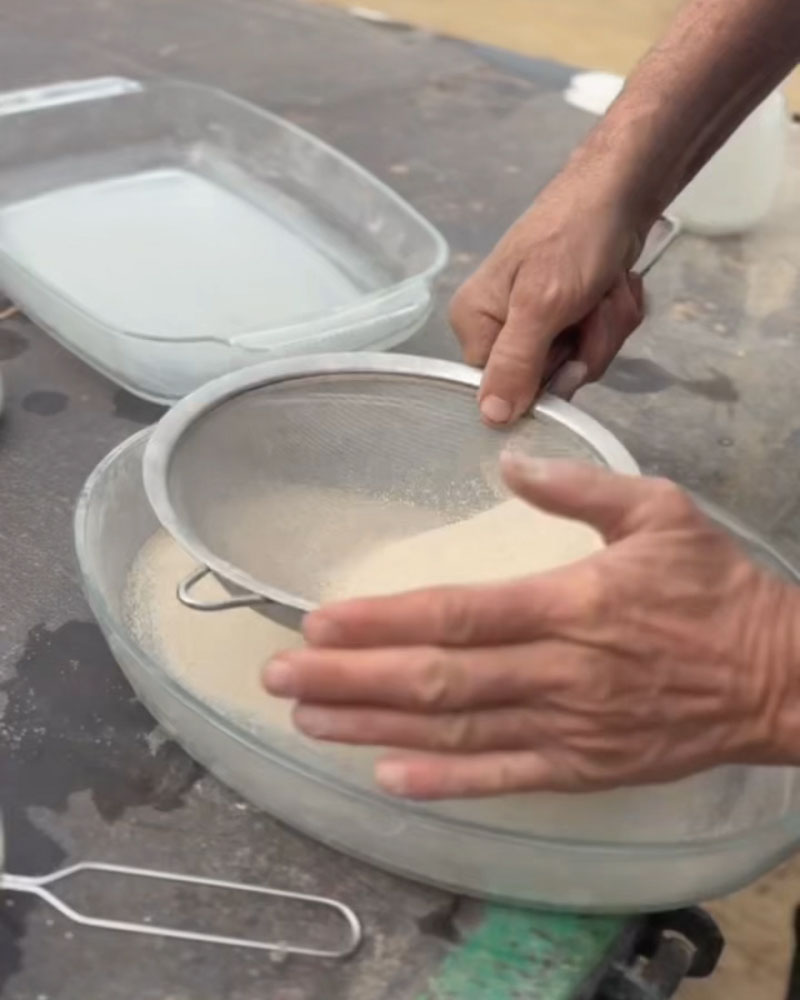
PREPARATION 501
Silica in Cow Horns
Purpose: Enhances photosynthesis, strengthens plants, and supports plant alchemy.
When to Apply: Spring, when fruit has set, and after harvest.
How it’s Made: Fine quartz powder buried in cow horns during the summer.
Benefits: Improves plant resistance to disease and supports grape maturation.
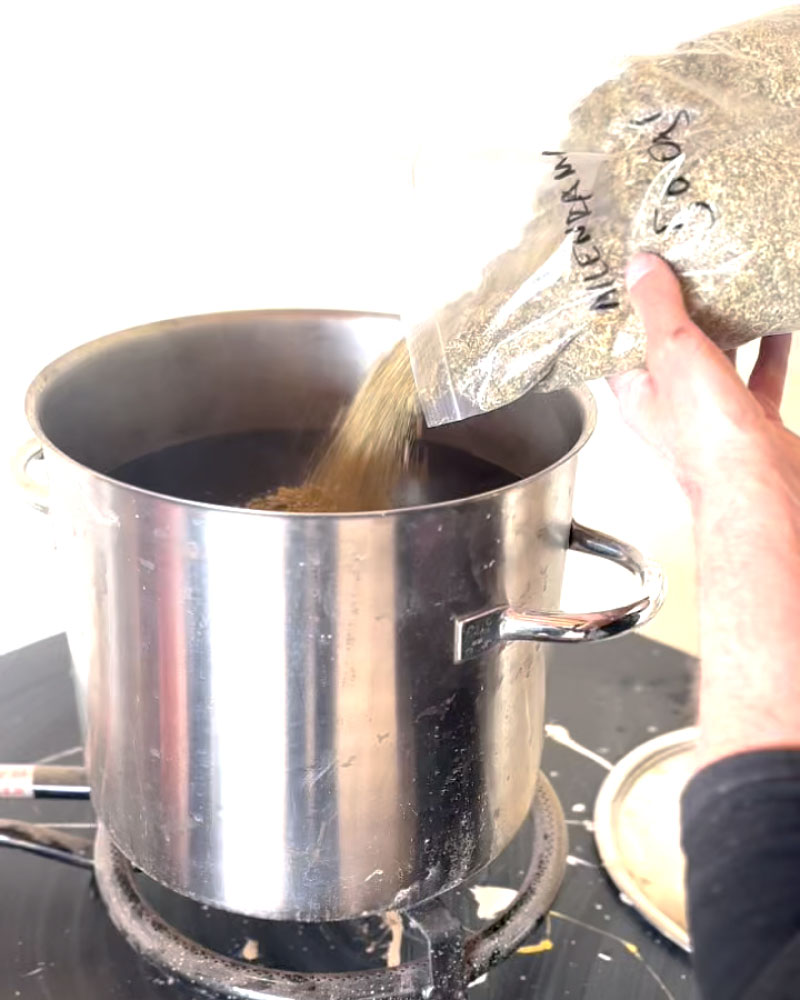
PREPARATION 502
Yarrow
Purpose: Regulates nitrogen processes in the soil and supports the rhythmic vitality of plants.
When to Apply:Spring.
How it’s Made: Natural yarrow flowers placed in deer bladders.
Benefits: Improves nutrient absorption by plants, increases potassium, and enhances grape quality.
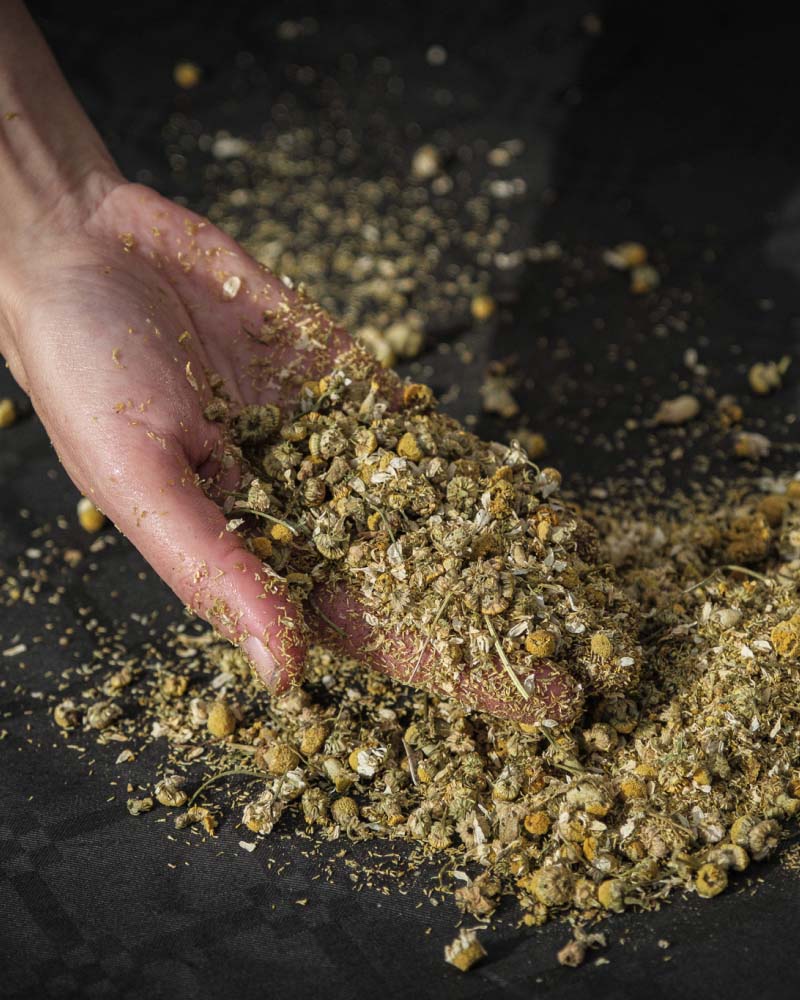
PREPARATION 503
Chamomile
Purpose: Improves organic matter decomposition and balances soil health.
When to Apply: Spring.
How it’s Made: Chamomile flowers placed in the intestines of cows and sheep.
Benefits: Promotes soil health, plant vitality, prevents fungal diseases in plants, and strengthens the root system.
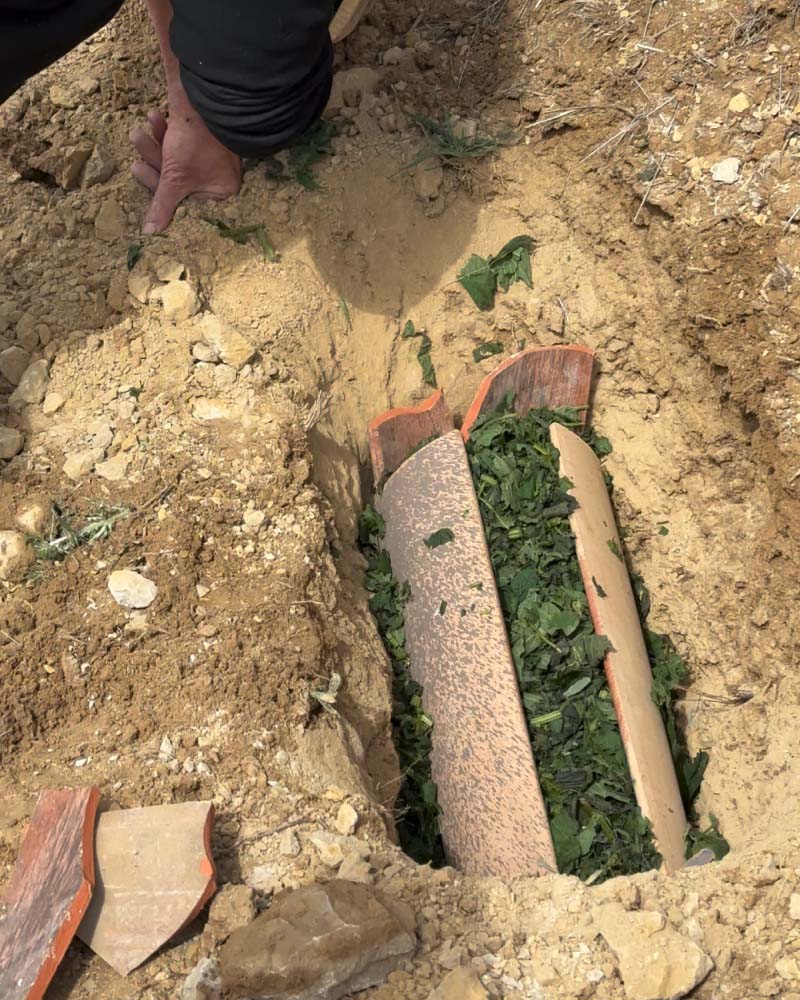
PREPARATION 504
Nettle
Purpose: Stimulates soil microbial activity and plant vitality.
When to Apply: During the plant’s growing season.
How it’s Made: Fresh nettles.
Benefits: Increases plant vitality, enhances disease resistance, and provides nitrogen and iron.
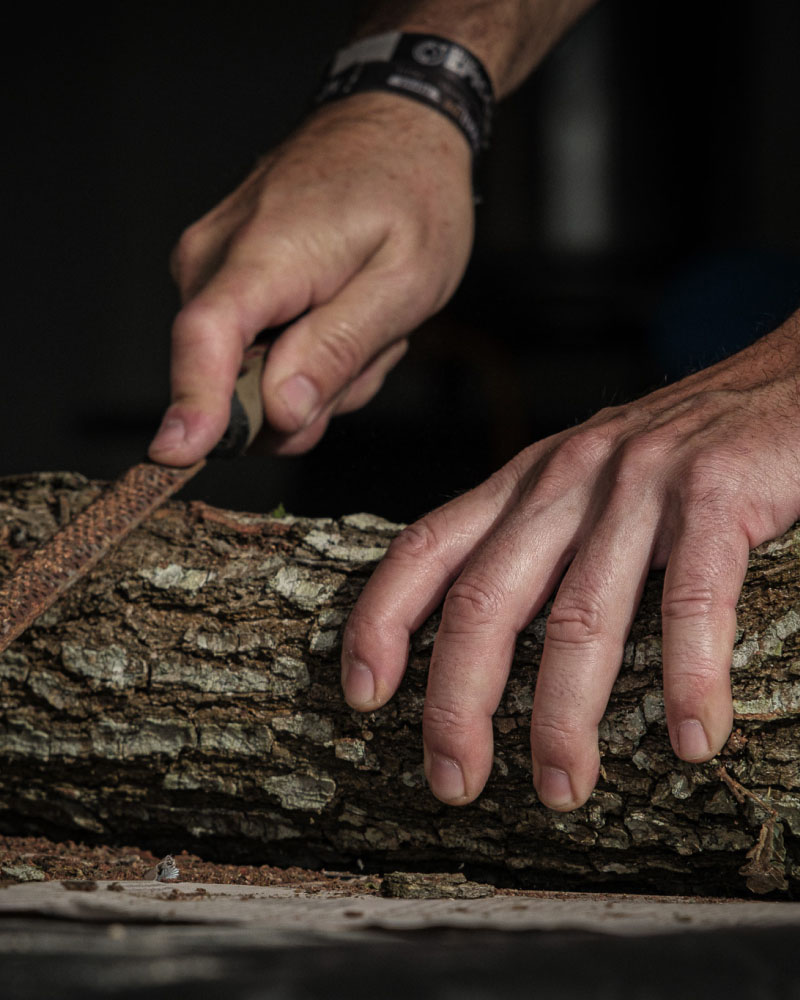
PREPARATION 505
Oak Bark
Purpose: Prevents fungal diseases and promotes soil decomposition.
When to Apply: Autumn.
How it’s Made: Oak bark placed in the skulls of cows and sheep.
Benefits: Improves soil health, reduces disease incidence, and adds calcium to the soil.
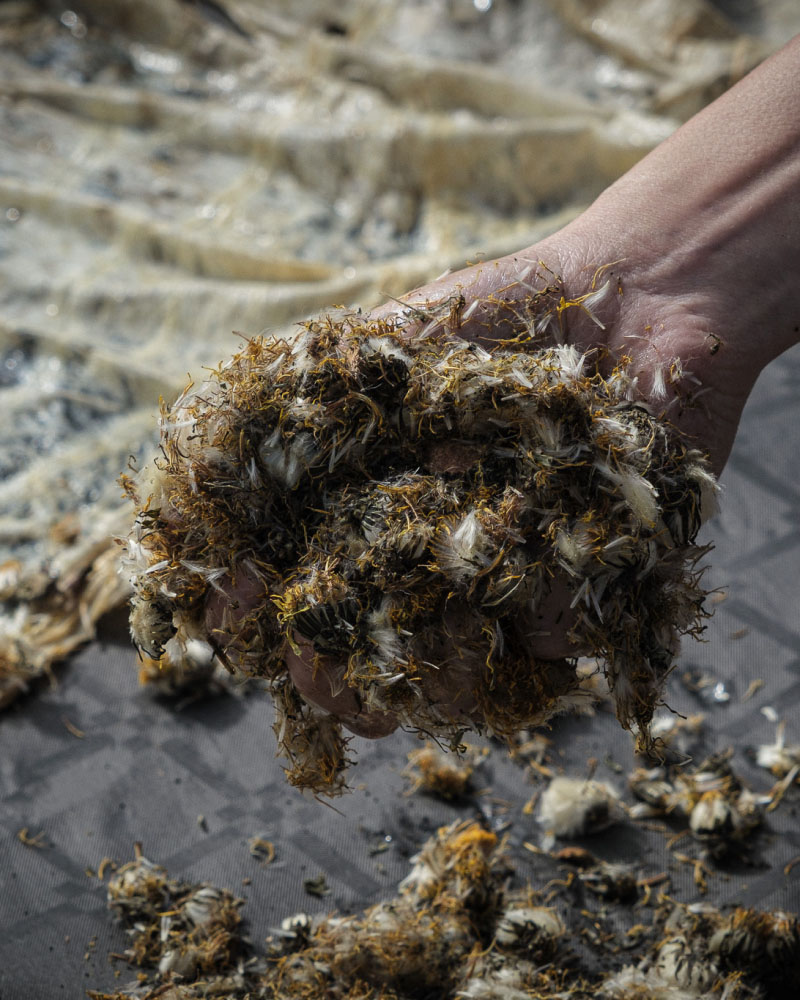
PREPARATION 506
Dandelion
Purpose: Facilitates the assimilation of silica and potassium.
When to Apply: Spring.
How it’s Made: Dandelion flowers placed in cow peritoneum.
Benefits: Helps balance plant growth, improves grape quality, and adds silica to the soil.
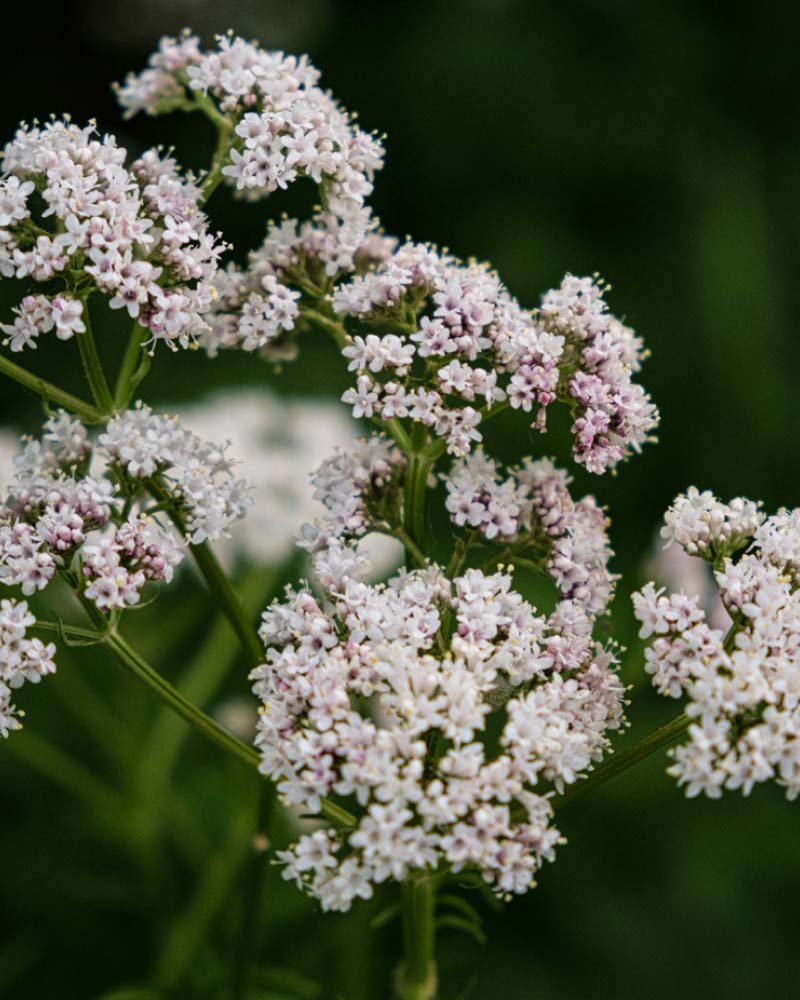
PREPARATION 507
Valerian
Purpose: Protects plants from cold and promotes flowering.
When to Apply: Before frost and in spring.
How it’s Made: Extract of valerian flowers.
Benefits: Improves plant resistance to cold and promotes healthy flowering.
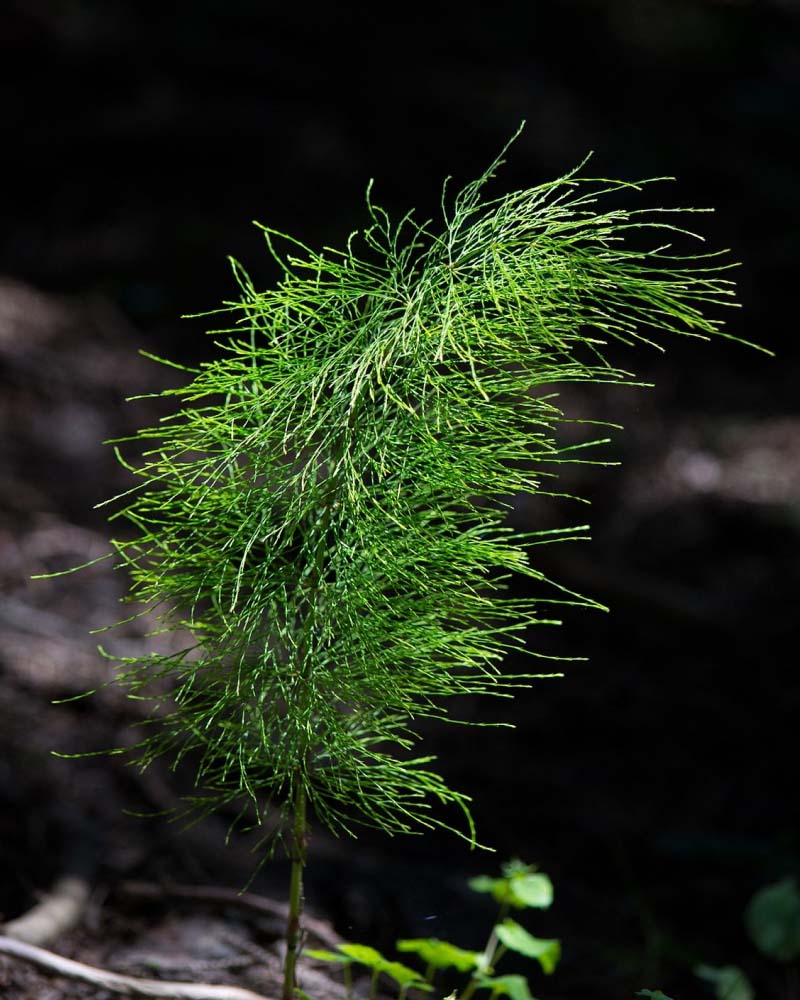
PREPARATION 508
Horsetail
Purpose: Controls fungi and strengthens the plant’s natural defenses.
When to Apply: During the growing season.
How it’s Made: Horsetail extract.
Benefits: Increases resistance to fungal diseases, improves general vineyard health, and adds silica.
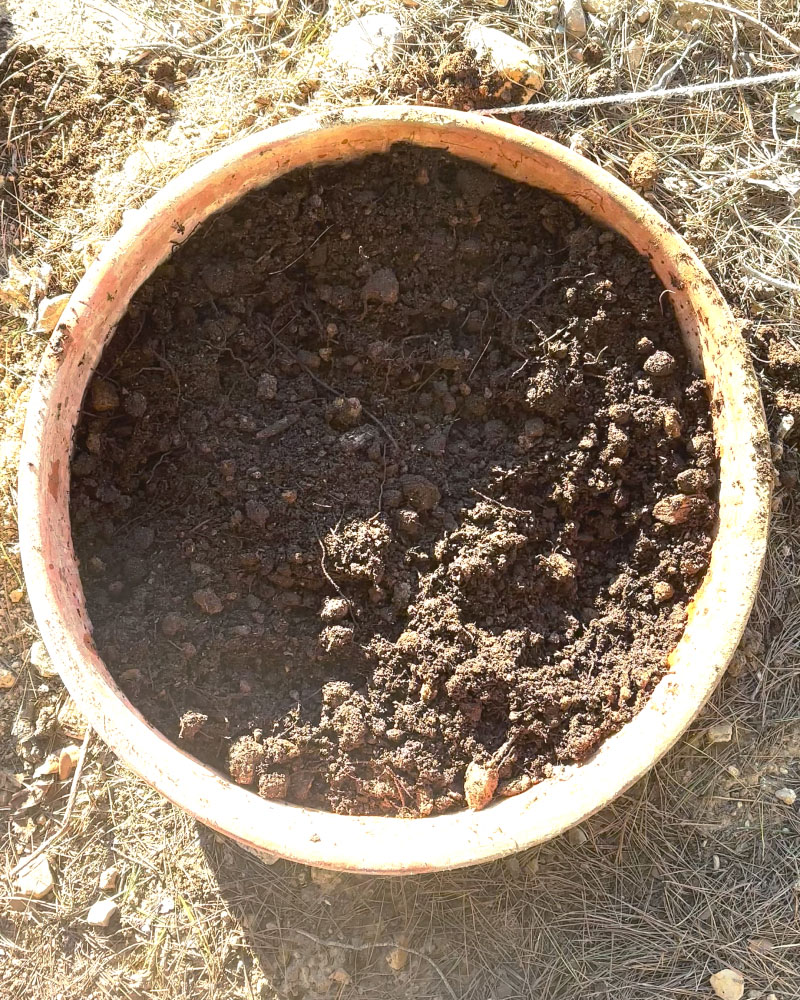
MARIA THUN PREPARATION
Purpose: Improves soil fertility, supports organic matter decomposition, and helps plants better withstand drought.
When to Apply: Autumn and spring.
How it’s Made: A blend of quartz, basalt, and organic eggshells, dynamized in cow manure.
Benefits: Strengthens soil vitality, increasing nutrient availability for plants.
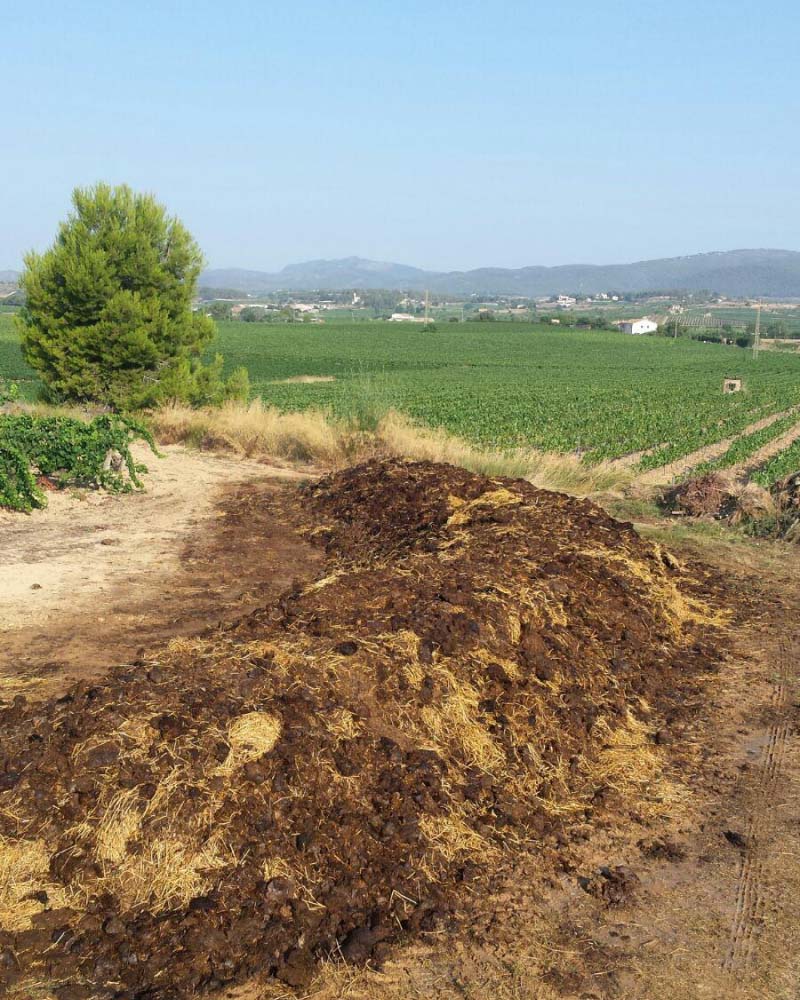
BIODYNAMIC COMPOST
Purpose: Revives the microbial life of soil that has been degraded.
When to Apply: Throughout the year, based on needs.
How it’s Made: Organic matter such as plant residues and organic manure, enriched with preparations 502 to 507.
Benefits: Enriches the soil with essential nutrients.
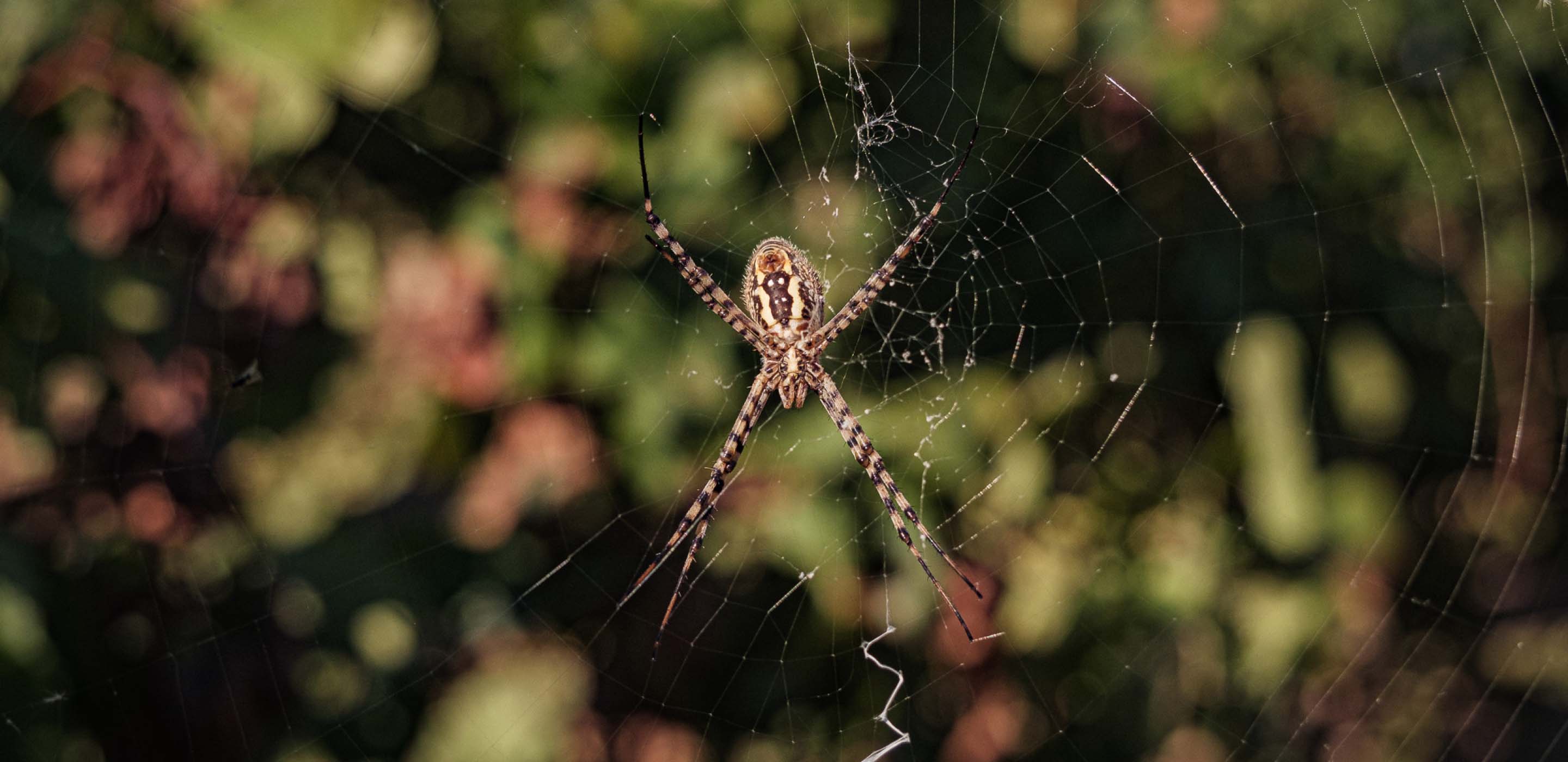
PRESERVING WILDLIFE
Enonatura is an initiative we carry out at PINORD to conserve the
natural environment surrounding our vineyards. This includes forest
management, habitat restoration, and the preservation and care of
species in wildlife rehabilitation centers.
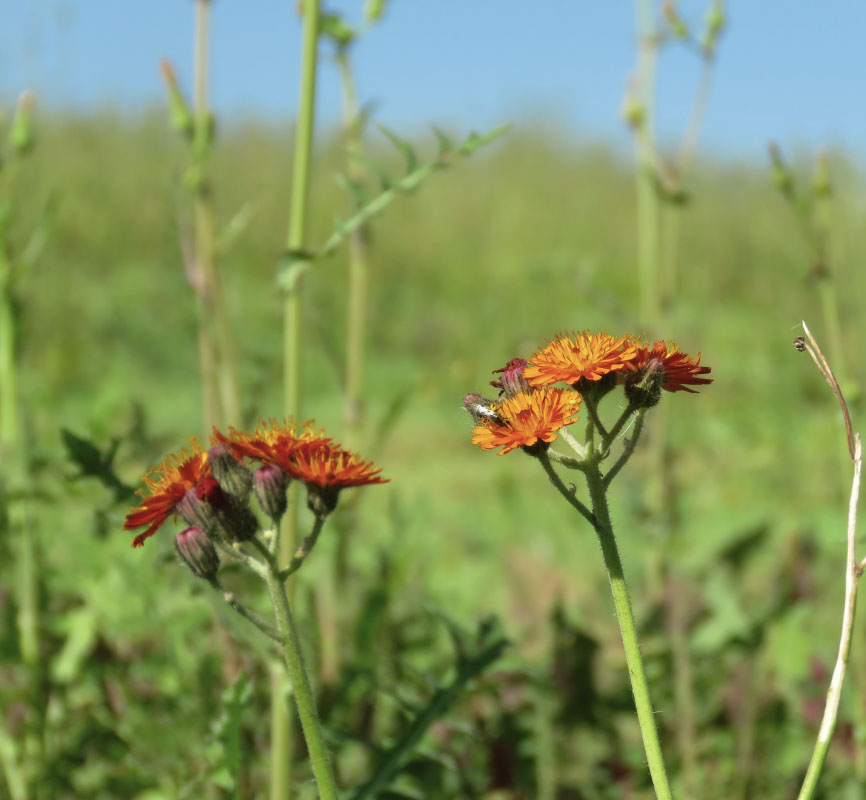
We have been working with the World Nature Foundation, an NGO dedicated to nature
conservation, biodiversity, and environmental protection. They provide us with expert
guidance and help us implement actions as part of the “PINORD Biodiversity Plan”,
which we have developed together.
To date, our actions and projects have focused on
various areas and species groups, such as nocturnal birds of prey: owls, barn owls, and
little owls, as well as small mammals like hedgehogs and bats. All these species play a key
role in organic and biodynamic agriculture, helping to control insect pests without the
need for pesticides or other harmful chemicals.
OUR ALLIES IN
BIODYNAMIC AGRICULTURE
OUR ALLIES IN BIODYNAMIC AGRICULTURE
Nocturnal Birds of Prey
Owls, barn owls, and little owls are excellent consumers of rodents and small mammals. Particularly the little owl and the common owl are also great controllers of small invertebrates and insects. We have placed various shelters and nesting boxes around our vineyards to encourage their presence, and we’ve also released rehabilitated individuals back into the wild.
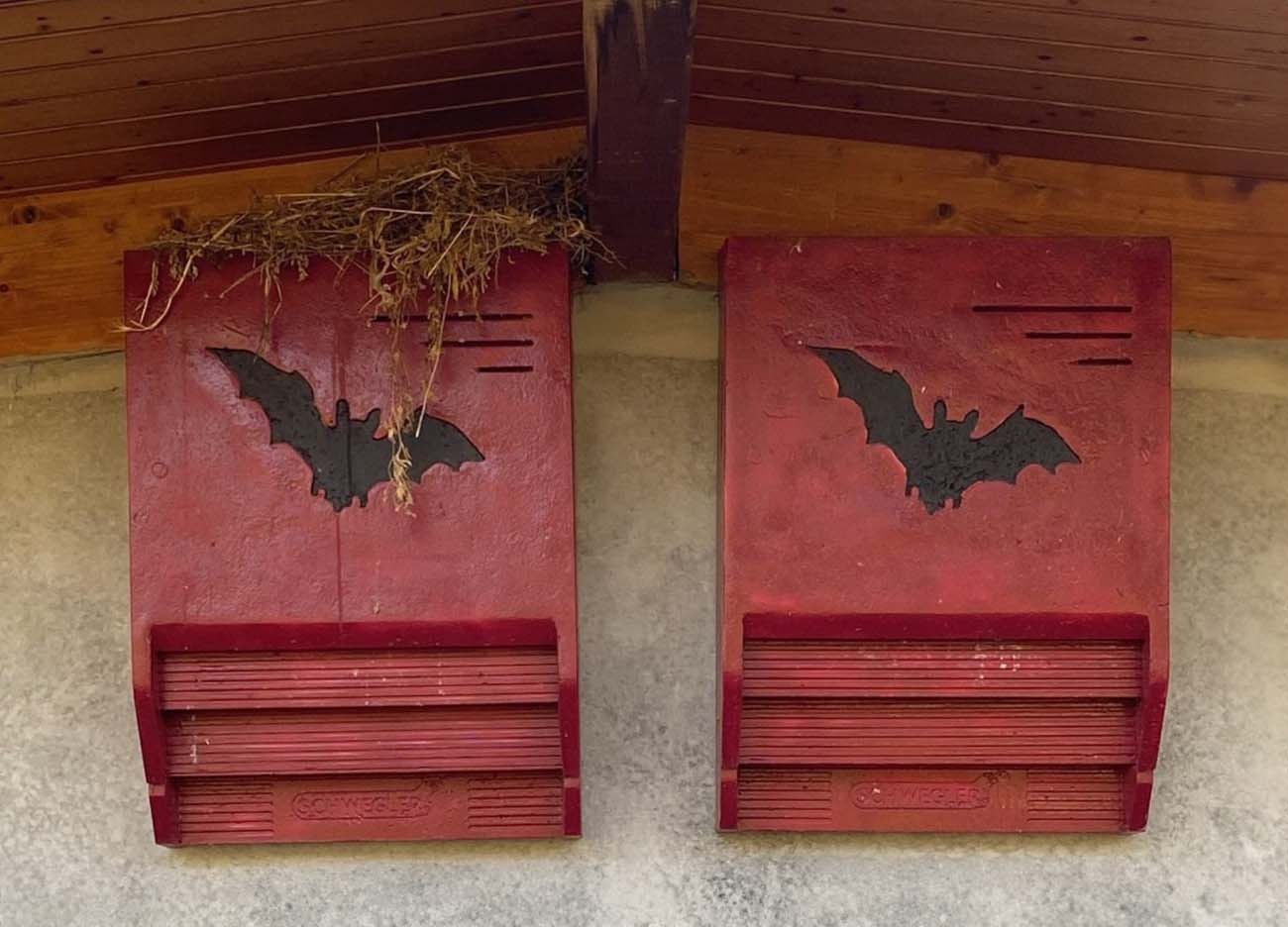
Bats
Discreet and mysterious, bats are essential allies for both crops and people, consuming vast quantities of harmful insects like the wine moth (a small nocturnal moth). A single bat can eat between 1,000 and 3,000 mosquitoes and small insects in one night, helping to control pests and providing relief from insects in the areas they inhabit. Many of the bat species in our region are endangered. We’ve placed shelters in our vineyards to provide them with suitable breeding grounds and safe places to live.
Hedgehogs
Hedgehogs are small mammals that, like nocturnal birds of prey and bats, are valuable allies in agriculture. They are insectivores and help keep populations of insects, worms, snails, and other invertebrates that may affect crops under control. In fact, their feeding habitat makes them especially useful in reducing pests such as snails and other small harmful creatures that impact vineyards and other plants.
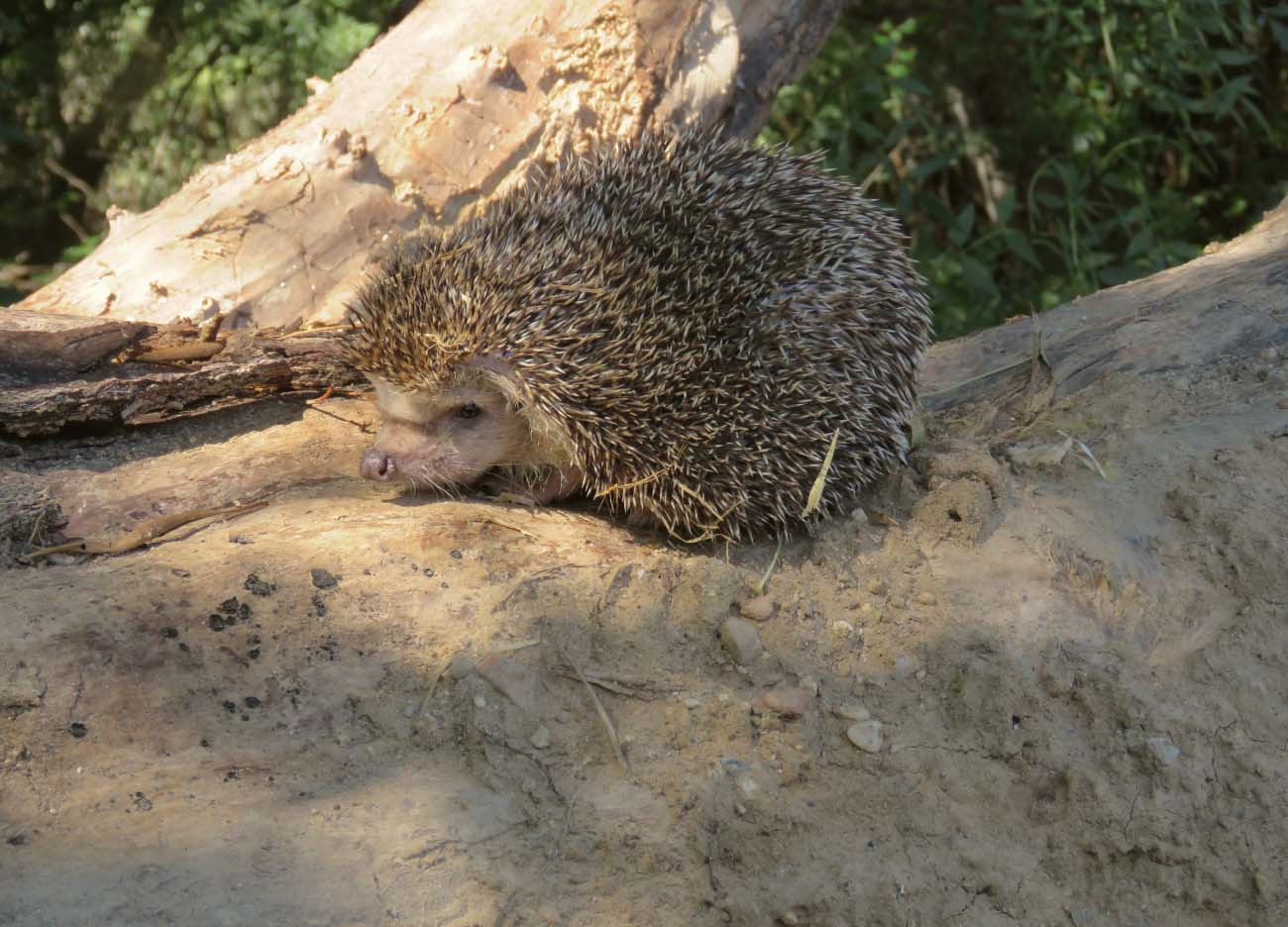

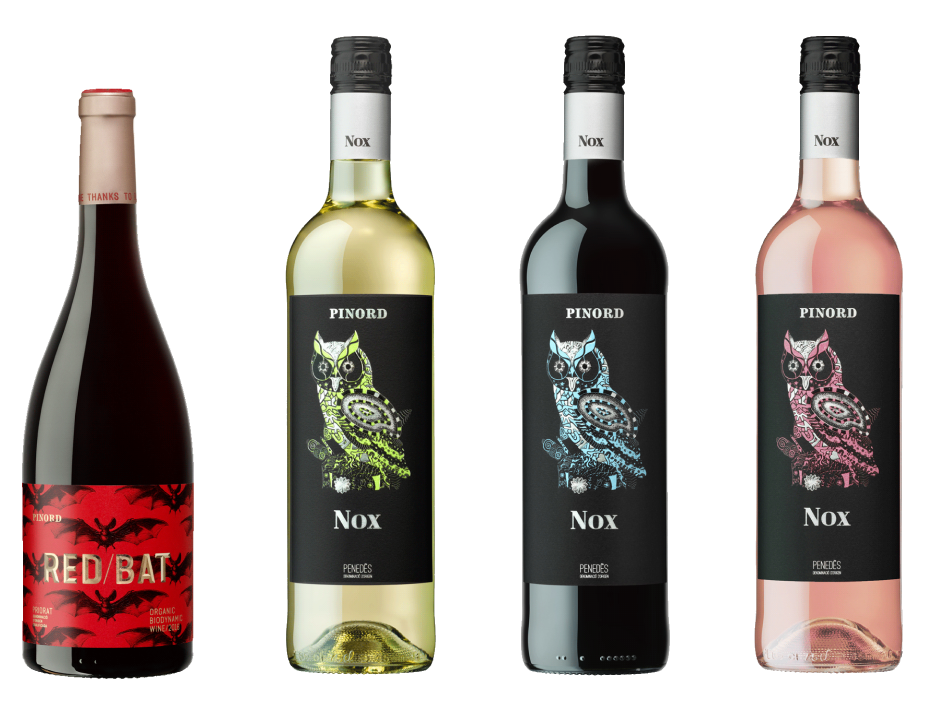
Nox and Red Bat Projects
Projects we’ve developed so that everyone can be part of this initiative:
These projects are designed to involve everyone in this conservation initiative.
The Mas Montanyans estate has become a private nature reserve. In this protected space,
dedicated to vineyard cultivation through organic and biodynamic practices,
environmental studies are conducted, and various species of animals and plants at risk
of extinction are safeguarded.
A percentage of the sales from the Nox and Red Bat
wines is allocated to this conservation project and other initiatives by the World
Nature Foundation. In this way, anyone who wishes can contribute to this cause.
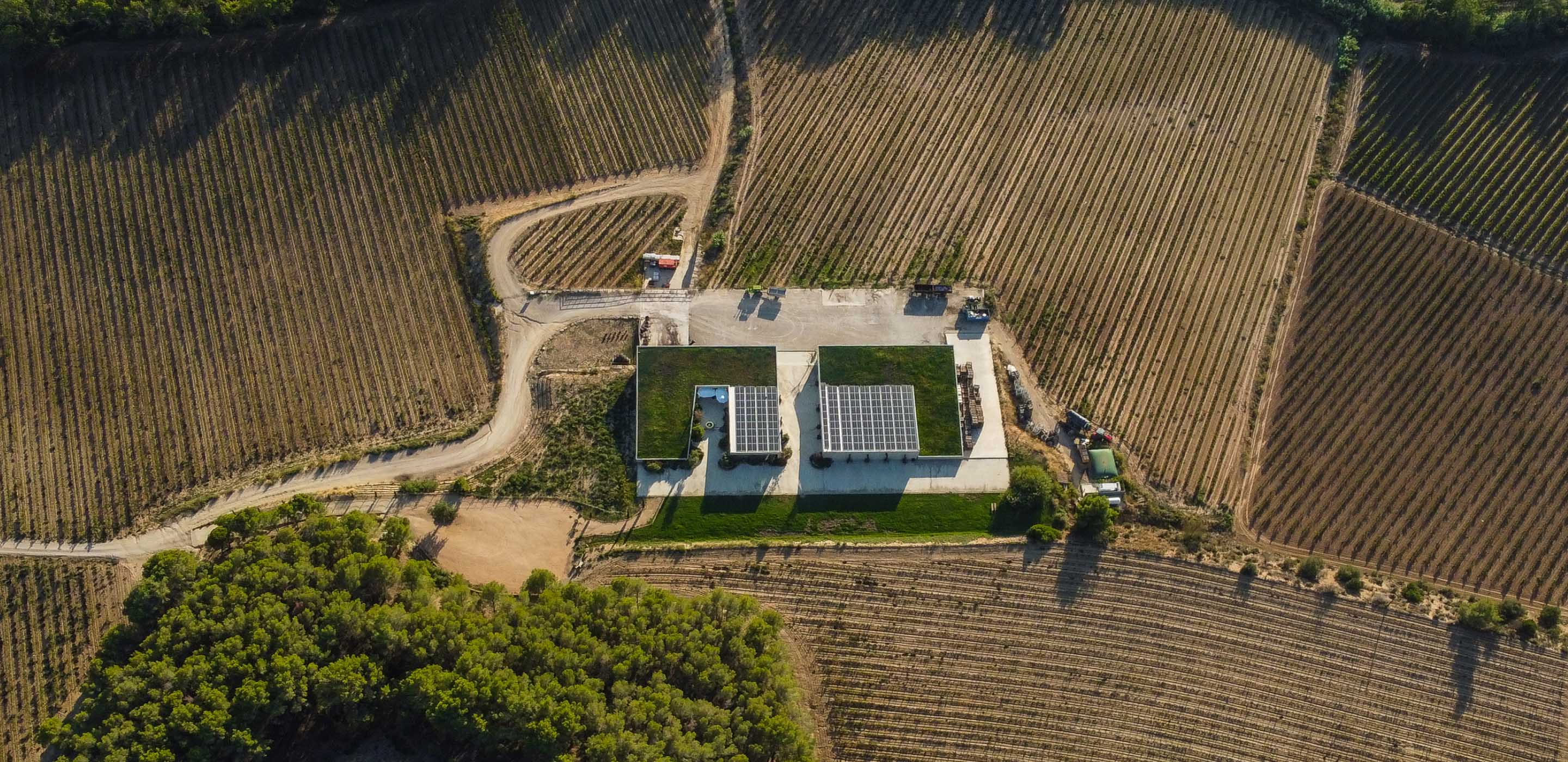
SUSTAINABLE CELLAR
Mas Montanyans, a commitment to nature
At PINORD, we firmly believe that producing quality wines must go hand in hand with a deep respect for the environment. For this reason, we have adopted a series of sustainable initiatives that allow us to reduce our environmental impact, protect natural resources, and contribute to a more sustainable future for all.
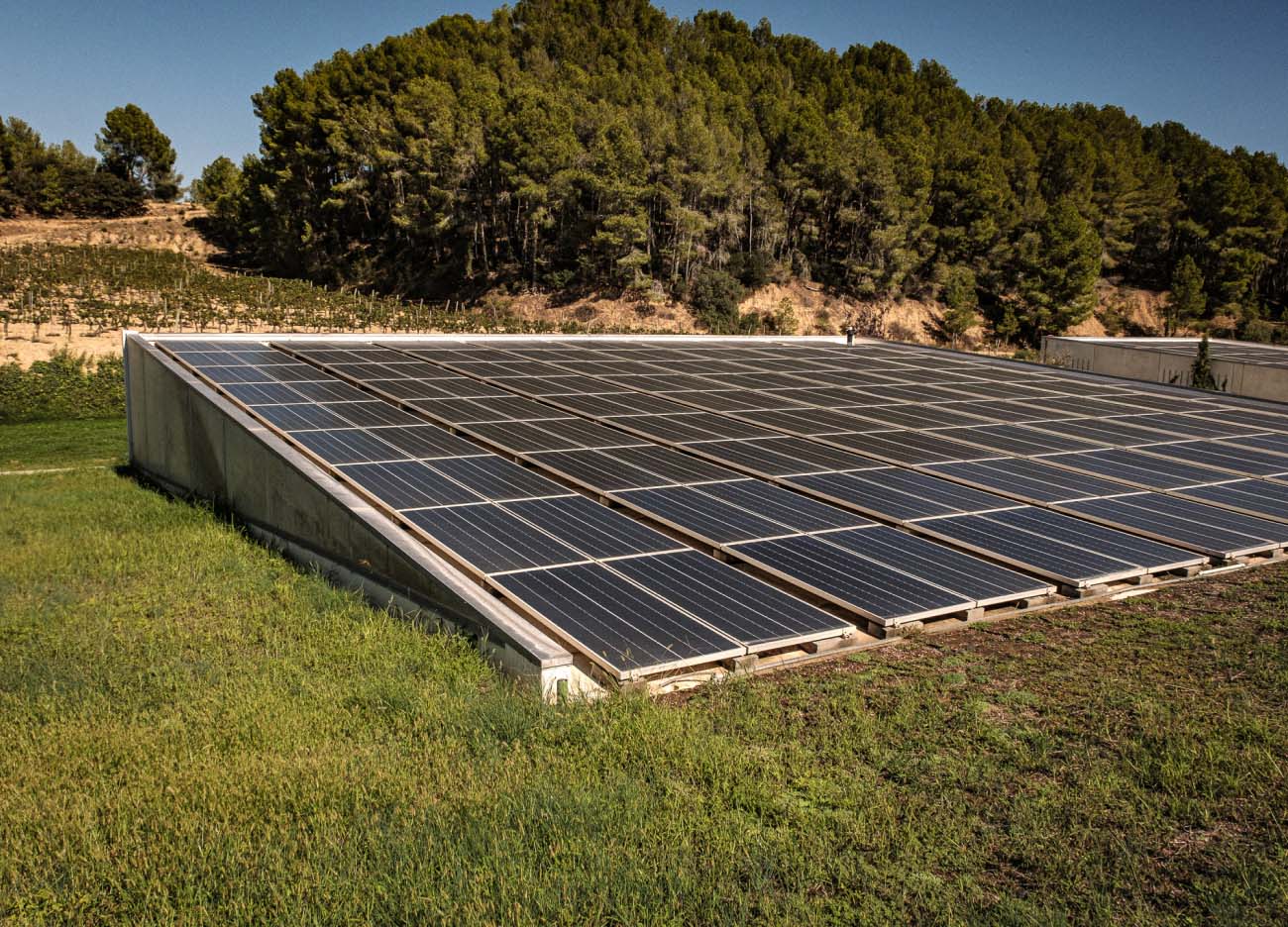
Solar Energy
Our commitment to clean energy
The installation of solar panels at our facilities is a clear demonstration of our commitment to renewable energy. With these panels, we generate the energy we consume, as the winery is not connected to any other electrical grid. This allows us to reduce our reliance on fossil fuel energy sources and lower our CO2 emissions.
Green Roof
A green roof for a more sustainable future
The roof of the winery is a green roof. It improves the building’s thermal insulation, reduces energy consumption, acts as a natural filter by purifying the air, and absorbs rainwater.
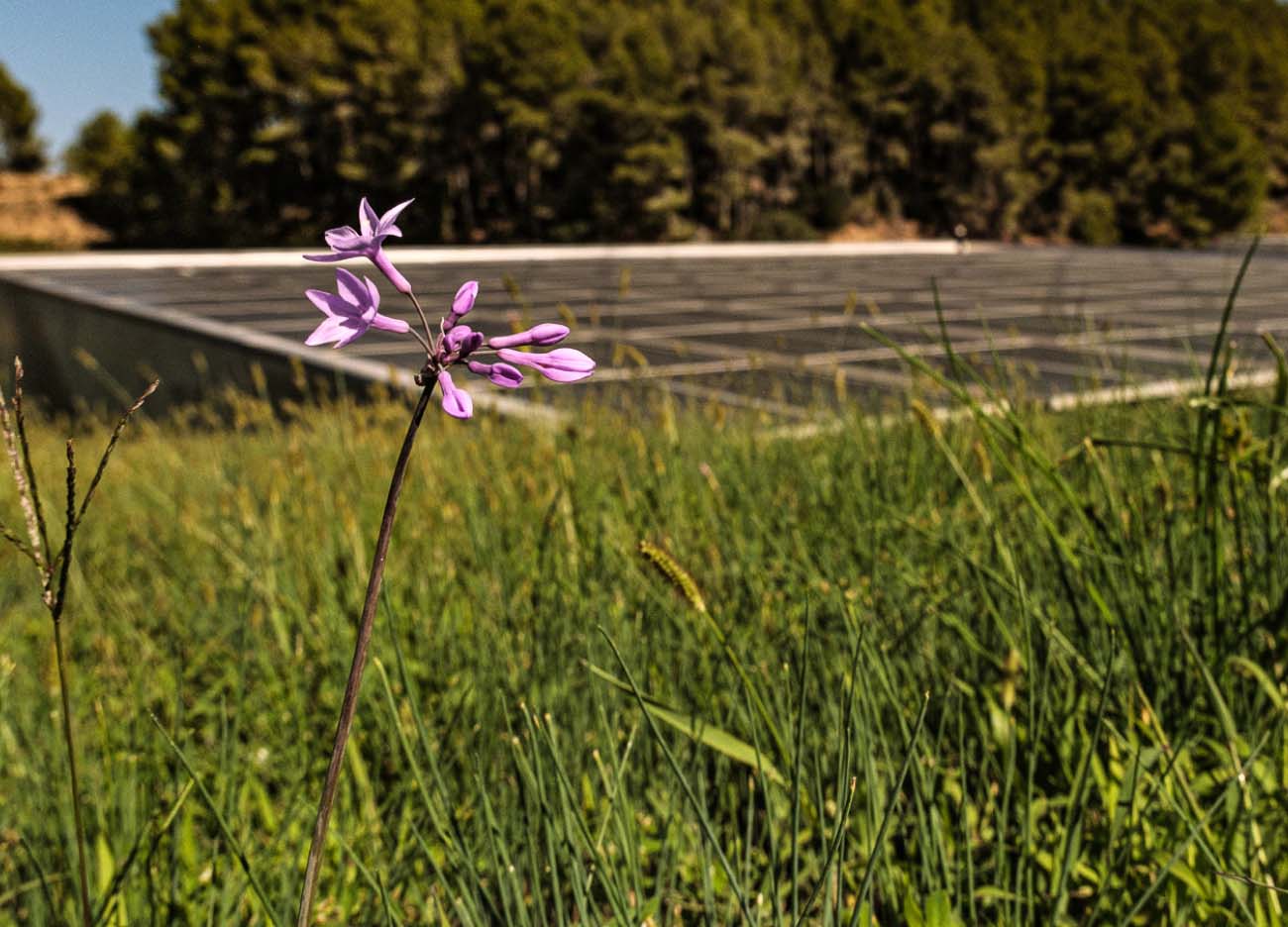
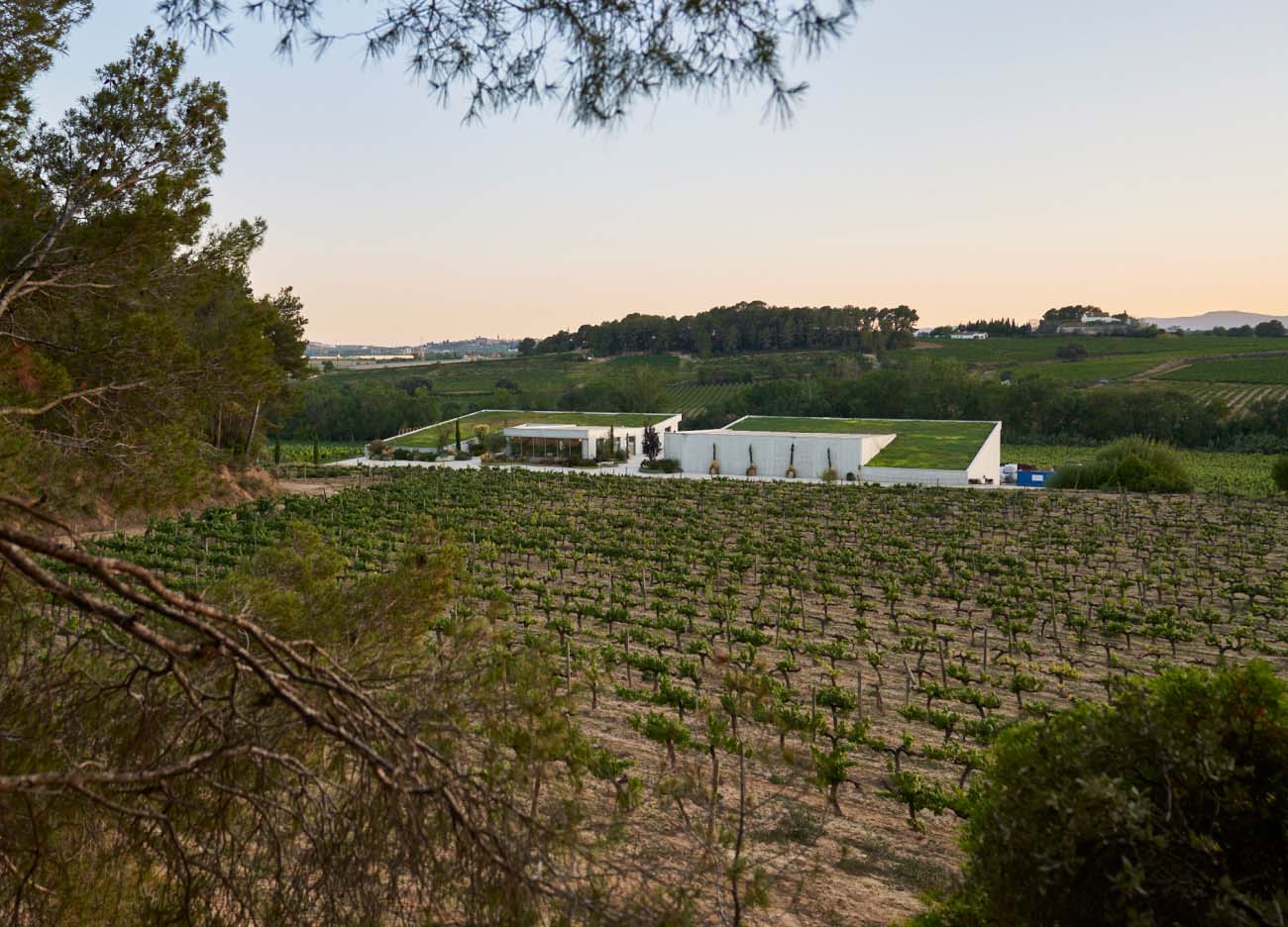
Landscape Integration
Harmony between tradition and modernity
Our winery blends harmoniously with the landscape. Thanks to sustainable architecture, we have created functional and efficient spaces that blend with the natural environment, respecting its essence.
Carbon Footprint
Committed to a greener future
Reducing our carbon footprint remains a top priority. Alongside the use of solar energy and the green roof, we’ve introduced measures to optimize our production processes and minimize our overall environmental impact.
